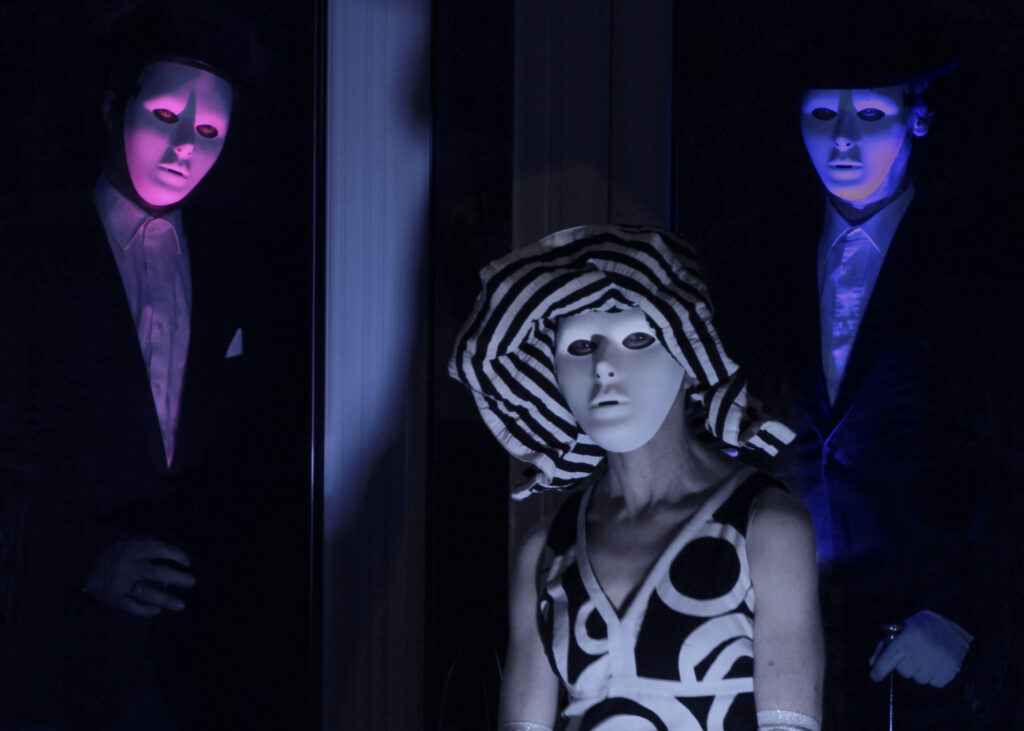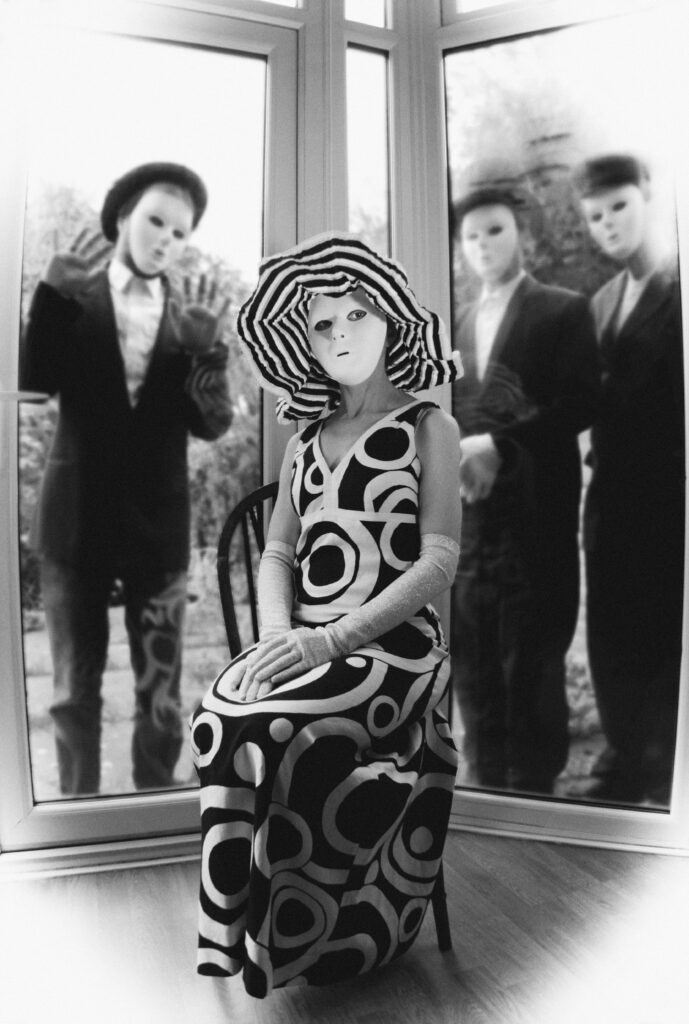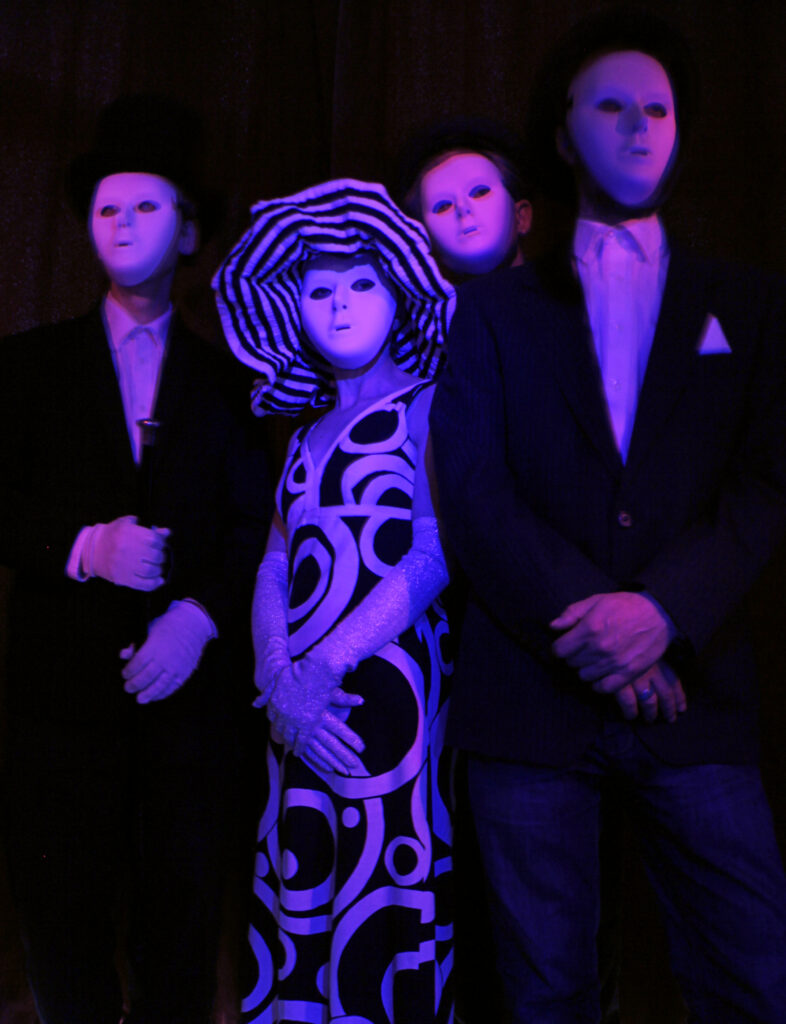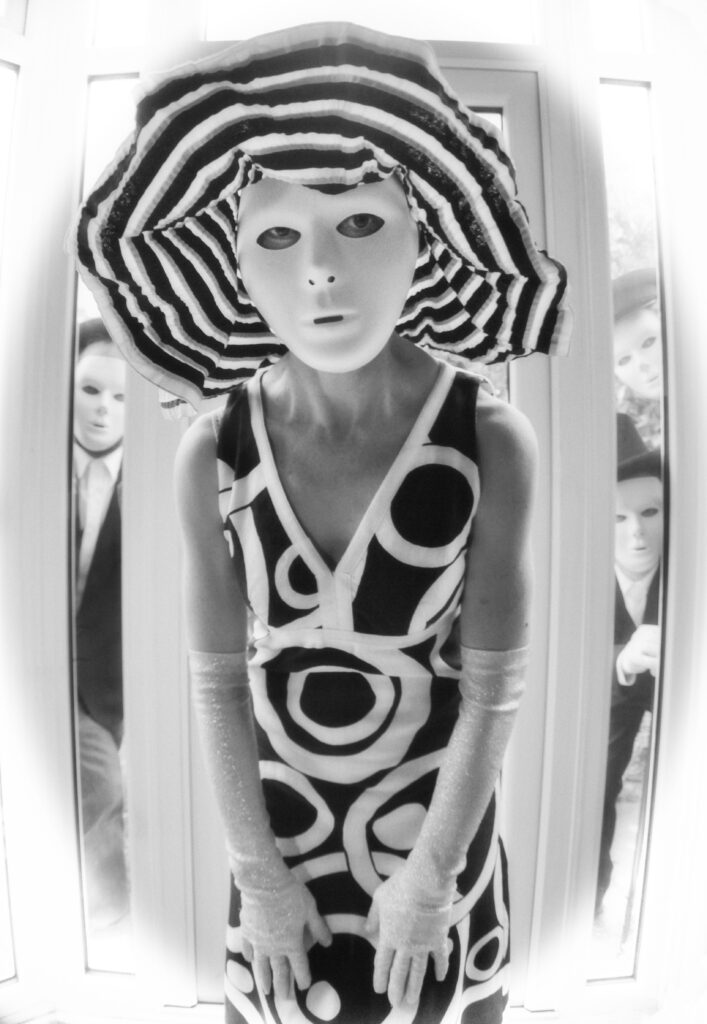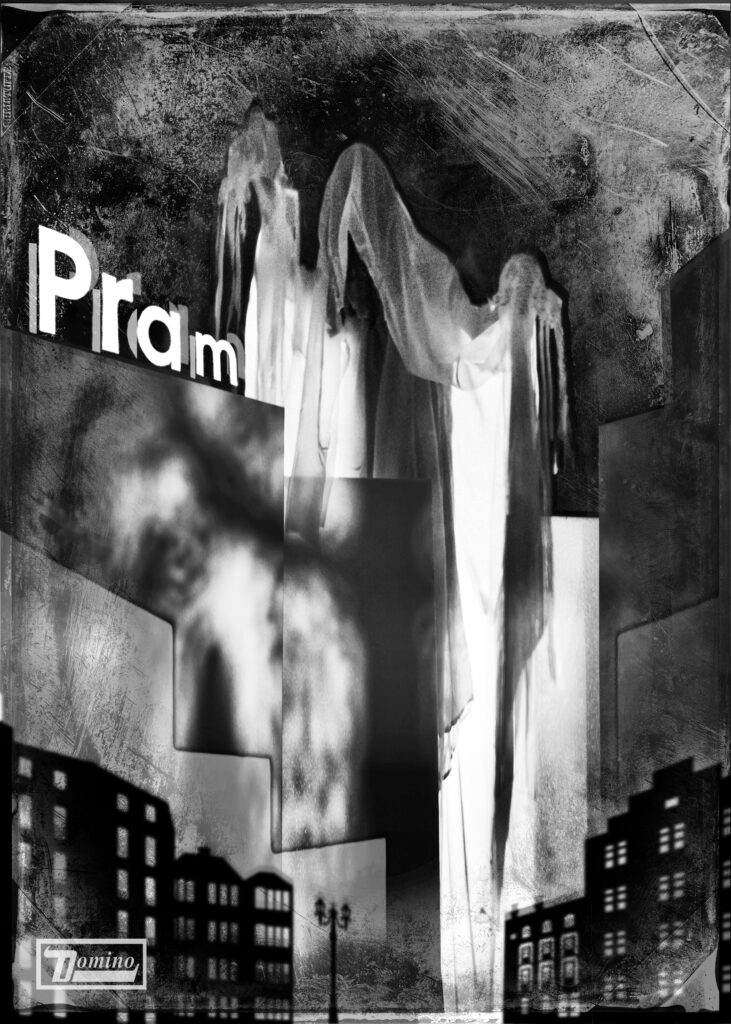Pram
Pram are a British post-rock band formed in Birmingham, England in 1988. Their electronic pop sound employs unconventional instruments and draws on stylistic influences such as krautrock, exotica, and dub
Photos
Photos
Biography
Pram’s striking new album ‘Across The Meridian’ arrives 11 years after its acclaimed predecessor on Domino Records, 2007’s ‘The Moving Frontier’. The time has been well spent and ‘Across The Meridian’ is a celebration of much of Pram’s iconic quirkiness, focused into a beautifully constructed and tautly produced soundworld.
The band use a bewildering array of instruments and are unrepentantly unfazed by the possibilities of performing on anything and everything that seems appropriate. “It’s not possible to develop a facility on every instrument we want to use” explains founder member and vocalist/multi-instrumentalist Sam Owen, “so we simply don’t worry about it and look instead for the initial thrill of discovering a new sound”.
As with previous albums, ‘Across the Meridian’ mixes instrumentals and songs, weaving a gleeful path through the musical territory of film scores, 30s jazz, sun-drenched pop, electronica, hip hop sampling and post-punk experimentation. Owen’s haunting and wistful voice is set in a variety of soundscapes, sometimes appearing as a snatched fragment of the subconscious and dreamlike, at others crafting a story of longing or regret, drawing the listener into Pram’s uncanny world through the mirror.
Over the years, Pram have expanded their ideas to encompass disorientating shifts in mood and texture, which help make ‘Across The Meridian’ one of the more original albums of 2018. The instrumental opener ‘Shimmer And Disappear’ is a storm of sounds, music and images, featuring a brass melody that come across like a 1960s film soundtrack to a scene in a bustling Moroccan market before leaping stylistic boundaries into a chorus like something Joe Meek might have cooked up.
Pram also make the listener lose their bearings in more subtle ways. A strange melody line on the eerie ‘Electra’ creates an ethereal human voice out of a manipulated flute sample. ‘In Where the Sea Stops Moving’, trombonist Harry Dawes plays theremin in a duet with Owen’s voice over a shifting soundscape of ebbing and flowing electronics, distant piano and the chiming of ancient timepieces in a sonic scenario that conjures up recitals in strange parlours. It calls out for a Quay Brothers animation as visual accompaniment.
Guitarist and samplist Matt Eaton explains why the music works so well as a soundtrack to the imagination. “There’s a huge interest in the band in collages of sound, triggering emotions in people. That’s part of the experimental end of what we do, but we bring it to our more conventionally structured songs as well so that each one grabs you and you live in its world whilst you are listening.”
To record the album, the band convened at the remote Foel studios in Wales to improvise on ideas and record some bases for tracks, before finishing them in their studio in Birmingham. Eaton admits that it’s been a lengthy process.
“Since it was possible to record an LP at home on tape we’ve been doing this – cutting up tape, arranging, re-recording and basically writing in the studio,” he says. “This is part of our process. It doesn’t make sense for us to go to a commercial studio and walk away with the finished product.”
Pram have a working process that has developed over many years and reflects shifts in band personnel and technological advancements. Long time member Max Simpson puts it like this “Different band members initiate the tracks, but the complete track is a collective effort which is at once less straightforward but more coherent than the sum of its parts and reflects the musical personalities of Pram at the time. Likewise, I still sample vinyl but the process is very different now because digital tech makes everything more possible. The challenge is to embrace the new world but not to lose that sense of wonder that you first had when you recorded something onto a cassette and then played it backwards through a speaker you were whirling around your head”.
Pram are essentially a product of the post-punk 80s, inspired by the likes of The Raincoats and The Slits and the way that those groups, as Eaton puts it, seemed to have “invented their own way of playing music”. Similarly Pram have always sounded like they make up their own rules, including an inventively open approach to rhythm and timing. And on ‘Across The Meridian’ their use of theremin and the manipulation of instruments also adds a certain harmonic wooziness.
“Fortunately we’ve still got that,” Eaton says. “We allow ourselves to make these odd mistakes and quirks and then the music has a character of its own. It’s part of what we’ve always done naturally, so it’s very unlike us to take a conventional path to something. We’ll want to create something new – a new sound or a new process – each time we record.”
In an idiosyncratic take on rock instrumentation, Pram’s music has often showed a penchant for miniature sounds including melodica, tuned percussion and stylophone. But the music on ‘Across The Meridian’ has more presence and heft. Often seemingly under-produced, with a raw energy and playfulness to their tunes, what becomes apparent on ‘Across The Meridian’ is the artistry and artisanship that Pram bring to the mix. The production values allow sub bass sounds to suck at the innards as your head rides a wave of glittering frequencies, all woven together in a fine tapestry.
“It’s slightly more hi-fi than previous albums,” Eaton concurs. “Early Pram music was recorded on a 4-track cassette player in a squat in Birmingham. Having a microphone was an achievement in itself. Equipment has changed, so the texture of our mixing and production has changed over the years.”
Anyone who wanted to check on Pram’s progress online during this time would have experienced difficulty as they are in Eaton’s words, “the only band in the world not to have a website.” And yet the world of Pram is immersed in visual imagery. Rare photographs of the band find them veiled in strange garb, often masked. Live shows feature projections by long time collaborator and film-maker Scott Johnson and videos for the new tracks come from the band themselves or other artists they’ve worked with over the years.
If the lack of a website is a fair reflection of this kind of reticence, in an age of information overload, of knowing too much about artists, it might not be such a bad thing. The way that Pram will be judged is on ‘Across The Meridian’ and their upcoming gigs, which will be informed by their work in multimedia, but as always it is their music that grounds the attention.
